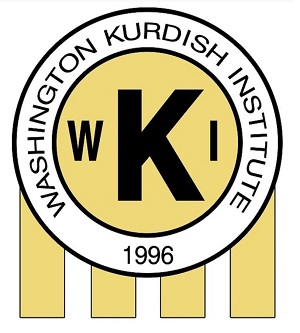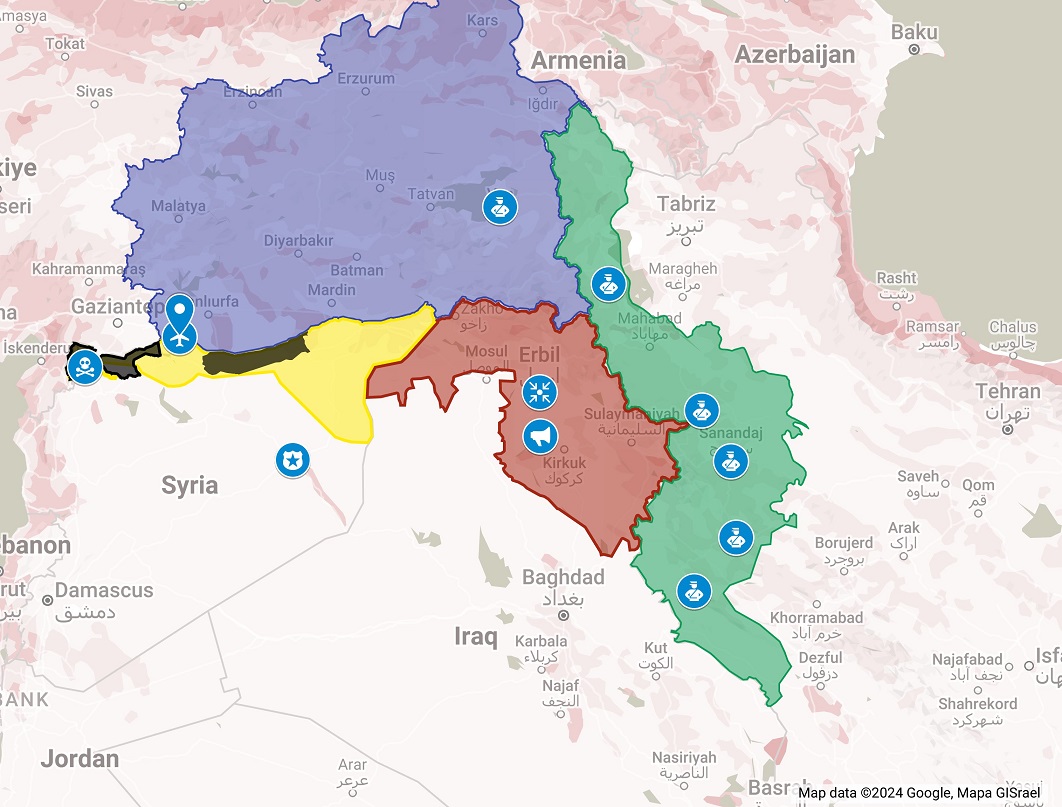169
A weekly brief of events occurred in the Kurdistan regions of Iran, Iraq, Syria, and Turkey.
Iran
- The Iranian authorities have intensified their crackdown on Kurdish Newroz celebrators, with reports emerging of arrests and imprisonment. In Urmia, journalist Rasoul Galehban was arrested, along with two Kurds, Kamaran Badberoot and Faraj Arsen, in Ilam. Furthermore, the regime continues to detain several activists and singers who took part in the festivities, during which Kurdish anthems were sung and played. In a parallel development, a Kurdish journalist from Kermanshah was arrested by regime forces, while three others, including a physician, were imprisoned to serve sentences for their activism. In another case, a Kurdish activist from Senna has been handed a three-year prison sentence for charges related to “propaganda” and “membership” in a Kurdish party. Separately, the Hegaw Organization for Human Rights issued a statement cautioning international human rights organizations about threats posed by the Iranian regime to their staff, particularly those residing in the Kurdistan Region of Iraq. The statement highlighted that a channel associated with the Islamic Republic of Iran’s Guards Corps conducted a survey on methods to assassinate Arsalan Yarahmadi, one of Hengaw’s founders.
Iraq
- Following the completion of renovations on the Kirkuk-Turkey pipeline, the Iraqi federal government is poised to resume oil exports. The pipeline, with a capacity of 350,000 barrels per day, had been utilized by Kirkuk since 2014 until March 2023, when Iraq contested independent oil exports by Kurdistan via Turkey in an international case. According to a Rudaw report, oil exports through the pipeline could potentially reach one million barrels per day. Meanwhile, Kurdistan’s oil exports remain at a standstill as Baghdad has yet to finalize agreements with international oil companies operating in the region and Turkey. The Association of the Petroleum Industry of Kurdistan (APIKUR) reported Iraq’s loss of $11 billion since Kurdistan’s oil exports were frozen. On a different note, Baghdad and Erbil have reached a tentative agreement concerning the salaries of public employees in the Kurdistan Region following prolonged negotiations and international pressure. While Kurdistan’s public employees received their March salaries, payment for three months from the previous year is still pending, awaiting full implementation of the budget law by Baghdad. This recent development follows a visit by Kurdistan Region’s President, Nichervan Barzani, to Baghdad, where he met with top state officials. “The recent agreement between the Prime Minister of the Kurdistan Region and Prime Minister Sudani marks a positive beginning, and we are optimistic about its continuation. Our discussions also encompassed the oil issue, and it is our firm belief that resuming oil exports is crucial for both Iraq and the Kurdistan Region,” stated Barzani.
Syria
- The US Central Command (CENTCOM) reported conducting 94 anti-ISIS (Da’esh) operations in Syria and Iraq. These operations resulted in the capture of 63 terrorists and the neutralization of 18. According to CENTCOM, 9,000 terrorists remain captive in Syria, with 45,000 families of Da’esh located in two camps: al Hol and Roj camps. The statement estimated that there are currently 2,500 active Da’esh terrorists. Da’esh terrorists have intensified their attacks in Syria and Iraq, including recent mass beheadings of Syrian soldiers and the killing of two members of the Syrian Democratic Forces (SDF). In a separate incident, a Turkish drone attack on April 3 resulted in the death of two female fighters, including a commander of the Kurdish-led Women’s Defense Forces (YPJ) in Kobani. Additionally, Turkish forces bombed a house in Kobani, causing significant property damage but no human casualties. The Autonomous Administration for North and East of Syria (AANES) condemned the Turkish attacks as “full-fledged war crimes” and accused Turkey of using them to divert attention from internal crises and recent election results. The AANES highlighted that the YPJ commander had fought on all fronts against Da’esh terrorists.
- The Syrian Observatory for Human Rights (SOHR) has documented new settlements on Kurdish lands in Turkish-occupied Afrin. According to the report, 48 new apartments, along with a mosque, have been allocated to families affiliated with Turkey’s Syrian proxies. Since the Turkish occupation of Afrin, numerous settlements have been established by Turkish and Islamic organizations, aiming to alter the demographic makeup of the region.
Turkey
- Following the Turkish government’s removal of the Kurdish mayor of Van and subsequent appointment of a candidate from the ruling party, tens of thousands of Kurds in the province took to the streets in protest. Turkish police intervened forcefully to disperse the demonstrations, resulting in the arrest of 260 individuals, including teenagers. Concerned about the potential escalation of anti-government unrest, the Turkish government reinstated the Kurdish mayor, Abdullah Zeydan. Following the Kurdish community’s celebration of this victory, dozens of Kurdish volunteers embarked on cleaning efforts to clear the city of protest debris. The pro-Kurdish Peoples’ Equality and Democracy Party (DEM Party) urged the government to halt “arbitrary detentions and arrests,” condemning the crackdown on what they deemed “rightful, legitimate, and peaceful” protests. Notably, the DEM party secured a significant majority in the Kurdish region, largely defeating the ruling Justice and Development Party (AKP).

